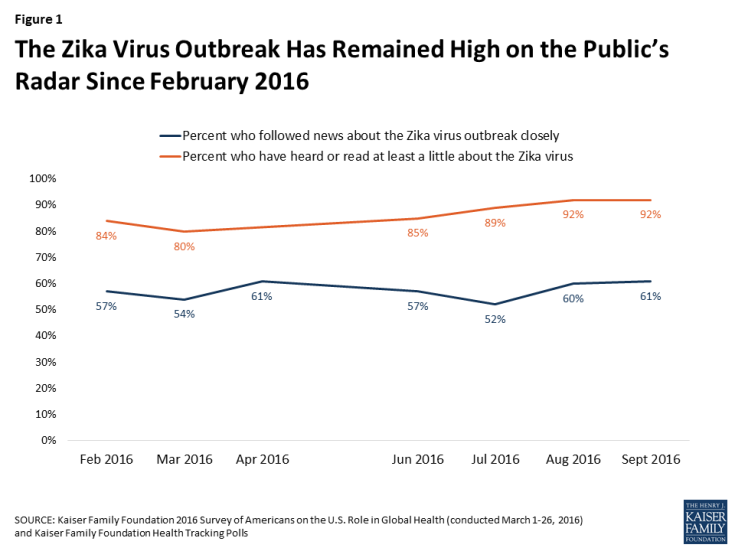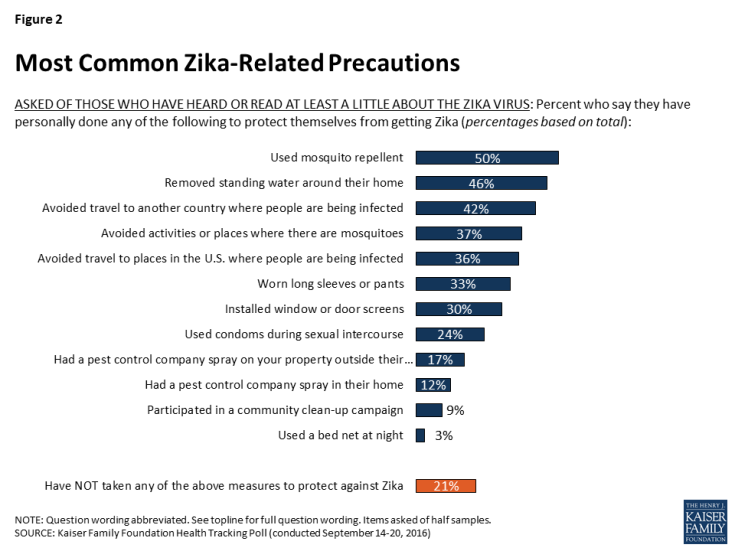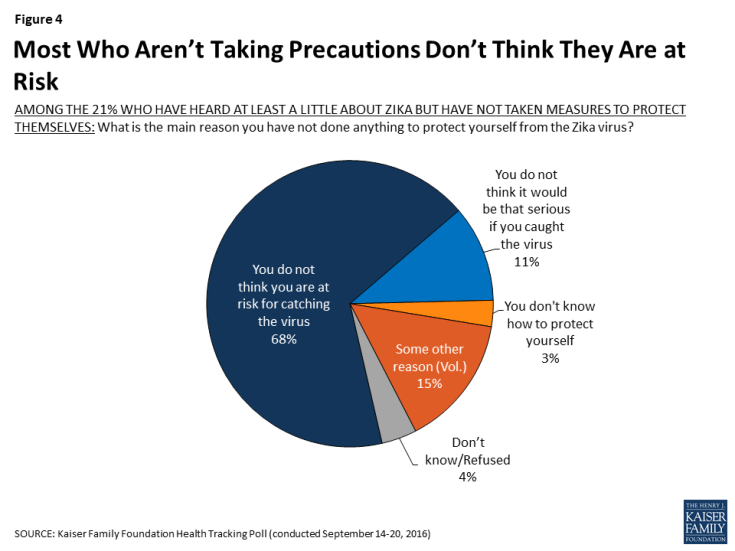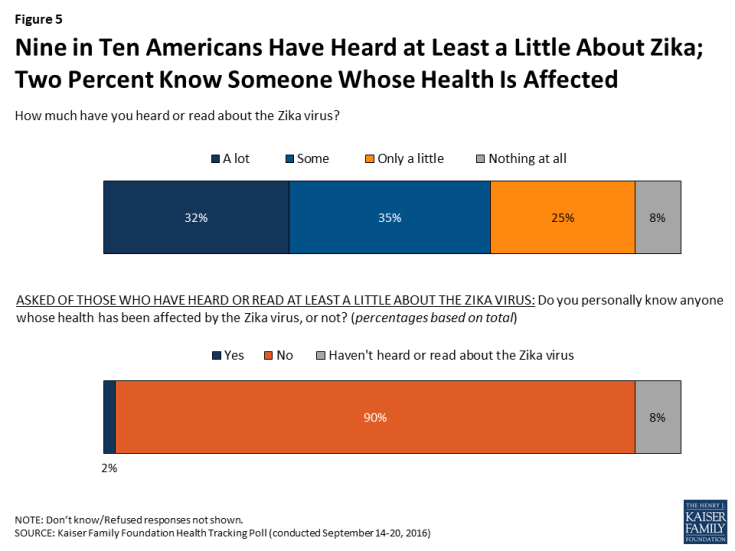Kaiser Health Tracking Poll: September 2016
The Zika Virus Outbreak
As part of the Kaiser Family Foundation’s ongoing efforts to track the public’s knowledge of the Zika virus outbreak and attitudes towards Zika-related issues, the September Kaiser Health Tracking Poll examines whether the public has taken steps in order to protect themselves from getting Zika. To see all of our Zika-related poll findings, visit the Zika slideshow.
As seen in other recent Kaiser Health Tracking Polls, the Zika virus is one of the top health policy stories followed by the public, with nine in ten Americans (92 percent) saying they have heard or read at least a little about the Zika virus and 61 percent of the public reporting that they were closely following news about the Zika virus outbreak.
Many Americans Say They Are Taking Steps to Avoid Zika
The Centers for Disease Control and Prevention recommends that the public take steps to protect themselves and others from the Zika virus by preventing mosquito bites and, for those who may be at-risk for the virus, taking precautions while engaging in sexual intercourse. In addition, because there are outbreaks occurring in multiple countries and at least one U.S. city — Miami, Florida — the CDC recommends that pregnant couples, or partners who are planning a pregnancy, do not travel to those areas.1
In July, about half (51percent) of Americans said they thought the Zika virus posed a threat (either “major” or “minor”) to them, personally.2 The most recent Tracking Poll finds the most commonly reported precautions being taken by Americans to protect themselves from getting Zika are using mosquito repellent (50 percent), removing standing water from around their home (46 percent), and avoiding travel to another country (42 percent). Fewer Americans report taking other Zika-related precautions.
Likelihood of Taking Steps to Avoid Zika Varies by Where you Live
When it comes to protecting yourself by reducing the number of mosquitoes in and around your home, more individuals living in the South report taking such precautions. Individuals living in the South are more likely to report having a pest control company spray outside their home to protect themselves than those living in other regions of the U.S. In addition, individuals living in the South (18 percent) are more likely to report having a pest control company spray insecticide inside their home than individuals in the West (7 percent) or Midwest (6 percent). Individuals living in the South are also more likely than people in other regions to report that they have removed standing water from around their home in order to protect themselves from catching Zika.
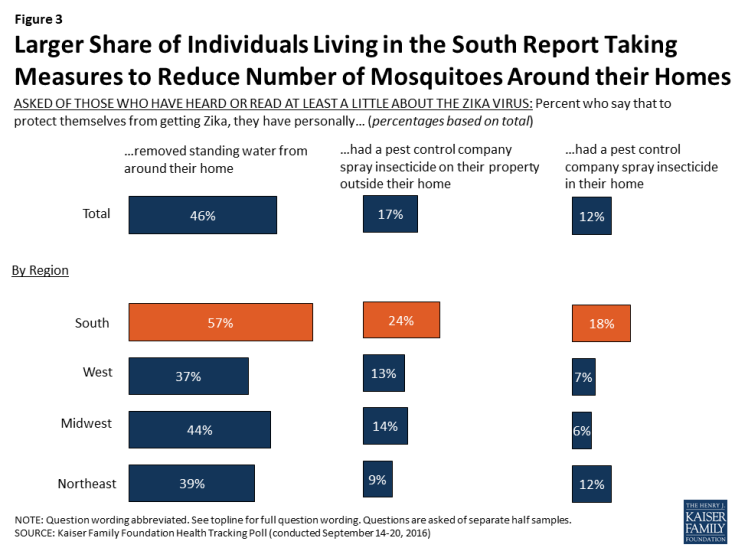
Figure 3: Larger Share of Individuals Living in the South Report Taking Measures to Reduce Number of Mosquitoes Around their Homes
Furthermore, individuals who report that there are a lot of mosquitoes where they live are more likely to say they have used mosquito repellent to protect themselves from getting the Zika virus than those who say there are not very many mosquitoes where they live (62 percent vs. 40 percent).
Those not taking Precautions do not Think They Are at Risk
One in five (21 percent) Americans report they have not taken any of these measures to protect themselves against the Zika virus outbreak. Among those who say they have not taken any of these precautions, two-thirds (68 percent) say it is because they do not think they are at risk, 11 percent say it is because they do not think it would be that serious if they caught the virus, and 3 percent say it is because they do not know how to protect themselves.
Few Americans Say They Have Been Personally Affected by the Zika Virus
When asked, very few (2 percent) Americans say they personally know someone whose health has been affected by the Zika virus.

